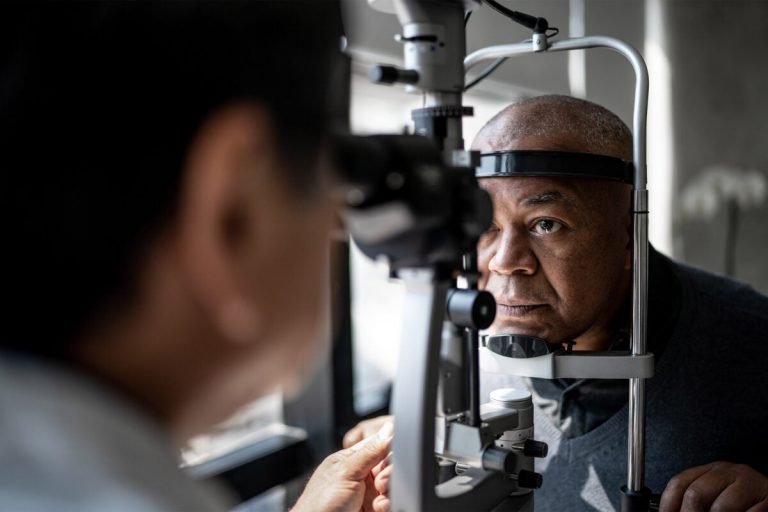Over the last several decades, cataract surgery has become exceptionally safe and rather routine in this country. Annually, an estimated 2 million Americans have this procedure, mostly older adults. The numbers could double or even triple by 2050.
Yet while many of us think cataract surgery merely sharpens vision, research suggests it may keep minds sharper, too, and help prevent dementia.
Research shows a link between vision loss and dementia
Recent research has noted a link between age-related macular degeneration, cataracts, or diabetes-related eye disease and dementia. One study found an increased risk of dementia in older adults who experienced worsening vision over an eight-year period.
So might preventing or reversing vision loss reduce the risk of dementia? Previous studies have been mixed. According to a 2015 study, cataract surgery was linked with a reduced risk of future dementia. A 2018 study found no beneficial effect on dementia risk, but a lower risk of mild cognitive impairment. Differences in study populations and methods, including the definition of dementia, may explain the different findings.
New evidence that cataract surgery may prevent dementia
A new study in JAMA Internal Medicine makes a strong case that removing cataracts may reduce your risk for developing dementia. It analyzes the relationship between cataract surgery and risk of dementia over time among more than 3,000 older adults with cataracts or glaucoma. None had dementia at the start of the study.
The researchers found:
The risk of developing dementia was 29 percent lower among people who had cataract surgery than among otherwise similar people who did not have this surgery.
Among people with glaucoma, the risk of dementia was the same whether they did or didn’t have surgery. (Of note, glaucoma surgery does not restore vision.)
Study results were unlikely to be due to differences in health or access to health care, or other risk factors for dementia. After researchers accounted for these factors, the results were unchanged.
While compelling, these findings need to be confirmed by others, as the researchers note. And future studies should include a more diverse population: more than 90 percent of study participants were white, and all had ready access to comprehensive health care, including cataract surgery.
To read the full story
This is an excerpt from an article that appears on the Harvard Health Publishing website.
Robert H. Shmerling, M.D., is the senior faculty editor for Harvard Health Publishing and a current member of the corresponding faculty in medicine at Harvard Medical School.



